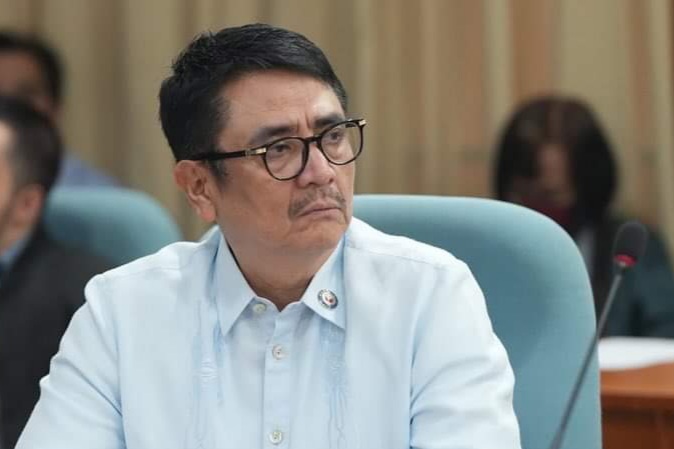House probe on rampant 'fake, malicious' social media news pushed
At A Glance
- Seven top leaders of the House of Representatives are seeking a congressional inquiry into what they described as "rampant posting of false and malicious content in social media platforms, while safeguarding freedom of speech and ensuring digital safety".
 Pampanga 3rd district Rep. Aurelio "Dong" Gonzales Jr. (Facebook)
Pampanga 3rd district Rep. Aurelio "Dong" Gonzales Jr. (Facebook)
The spread of fake and malicious news on social media have gone too far.
Because of this, seven top leaders of the House of Representatives are seeking a congressional inquiry into what they described as “rampant posting of false and malicious content in social media platforms, while safeguarding freedom of speech and ensuring digital safety".
This is embodied in House Resolution (HR) No. 2147 authored by Senior Deputy Speaker Pampanga 3rd district Rep. Aurelio “Dong” Gonzales Jr., Deputy Speaker Quezon 2nd district Rep. David “Jay-Jay” Suarez, Majority Leader Zamboanga City 2nd district Rep. Manuel Jose Dalipe, and Minority Leader 4Ps Party-list Rep. Marcelino Libanan.
Also serving as authors were quad-committee (quad-comm) co-chairmen Surigao del Norte 2nd district Rep. Robert Ace Barbers, Manila 6th district Rep. Bienvenido Abante Jr., and Abang Lingkod Party-list Rep. Joseph Stephen Paduano.
The seven suggested that the investigation be conducted jointly by the House Committees on Public Order and Safety, on Information and Communications Technology, and on Public Information.
In their resolution, they said that the “rapid growth of social media platforms has allowed the dissemination of content that can mislead the public, damage individual reputations, arose trust in institutions, and disrupt public discourse".
“False and malicious content has also been exploited by unscrupulous individuals to promote scams, cyberbullying and other activities that negatively impact public safety and order,” they said in the resolution adopted by the House of Representatives.
“The balance between ensuring digital safety and protecting constitutional freedoms, particularly freedom of speech and expression, must be maintained, as these are cornerstones of democracy,” they said.
They added that “there is a pressing need for a collaborative approach among relevant committees to identify gaps in existing laws and recommend measures to combat harmful content while upholding the rights of individuals to participate in free and open discourse".
The House leaders pointed out that due to the interconnected nature of technological, informational and public safety concerns, it is imperative for the three committees to conduct a joint inquiry in aid of legislation on the impact of false and malicious content in social media.
They noted that Republic Act (RA) No. 10175, or the Cybercrime Prevention Act of 2012, was enacted “to address the misuse, abuse and exploitation of information and communication technology and to combat content-related offenses such as the deliberate spread of false and malicious information that causes harm to individuals and the public".
Gonzales and his colleagues vowed to make the deliberations, findings and recommendations of the joint inquiry available to the public “to promote transparency and foster trust in the process".
The proposed inquiry would be guided by the following principles and goals:
- Uphold freedom of speech. This is to ensure all proposed measures align with constitutional guarantees of freedom of speech and expression, and prevent any undue censorship.
- Identify gaps of legislation. There must be a review existing laws, particularly RA No. 10175, to identify gaps and recommend amendments that address the challenges posed by emerging technologies and harmful online content.
- Enhance social media platform accountability. There should be proposals to improve transparency and accountability mechanisms for social media platforms, including enhanced content moderation, reporting systems and safeguards against misuse of algorithms.
- Combat cybercrimes. Measures must be recommended to address cybercrimes such as scams, cyberbullying, and harassment arising from false and malicious online content.
- Protect digital safety and public trust. Public awareness campaigns are needed to improve digital literacy and the ability of users to discern credible information and report harmful content.
- Include stakeholders on the process. There is a need to engage key stakeholders such as representatives from social media companies, cybersecurity experts, civil society organizations, and legal experts to ensure a balanced and effective approach to combating harmful content.